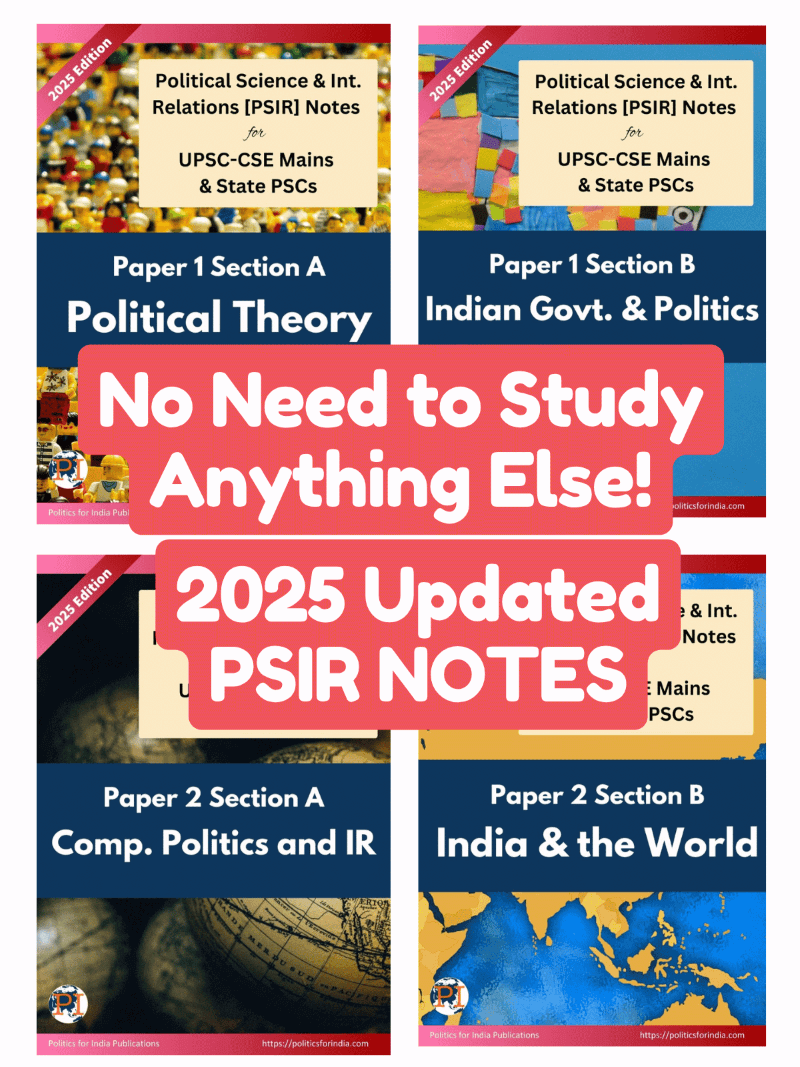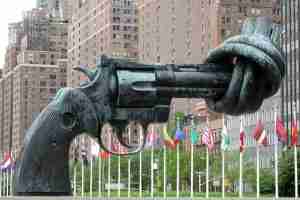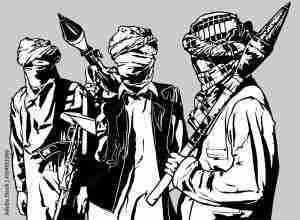Behavioural movement in political science also impacted the field of international politics. It has also led to the second great debate in international relations i.e. between traditionalists and positivists.
1] Systems Approach by Morton Kaplan
Systems approach in international politics is based on the systems approach of David Easton. It is also influenced by the general systems theory. General systems theory suggest the utilization of the concepts of different disciplines. Systems approach in international relations is based on the fundamental concepts of the system approach in general. However systems approach (in IR) is often criticized that it does not include even the fundamental features of systems approach.
‘Systems approach is a huge misstep in right direction’ -Stanley Hoffman
A] Morton Kaplan’s Objective
Kaplan wanted to give ‘grand theory’ of international relations. A theory as universal as Newton’s law of gravity. The theory which is capable of explaining past, present and future of international politics. Hence he developed different models (total 10) to explain the past, present and future of international politics.
B] Models by Morton Kaplan
Morton Kaplan, in his System Theory of International Politics, proposed six primary models. He later extended his analysis to include additional types, giving a set of 10 system models. These models describe different ways in which the international system can be organised and maintained.
Core Six Models
1] Balance of Power System: Multiple independent actors (states) seek to preserve equilibrium through shifting alliances. War is used as a tool to restore balance.
2] Loose Bipolar System: Two major powers dominate, but other states retain some independence. There is some flexibility in alliances and limited cooperation.
3] Tight Bipolar System: Two blocs are led by two superpowers, and all other states align strictly with one or the other. Conflicts are controlled through rigid bloc discipline.
4] Universal International System: All major actors agree to follow common rules and institutions, possibly under a world government or global governance system.
5] Hierarchical International System: One dominant actor (hegemon) controls or leads the rest. The system remains stable as long as the hegemon provides order.
6] Unit Veto System: Every major actor has the capability to destroy the system (e.g., through nuclear weapons). As a result, war becomes irrational, and peace is maintained through mutual deterrence.
C] Critical Evaluation
According to Stanley Hoffman, ‘systems approach is a huge misstep in right direction.’ It is a strange parlour game, it does not capture even the basic stuff of international politics.
The models do not have analytical of explanatory importance. Some models are hypothetical, some models are outdated and the current international politics does not resemble any of the model.
The purpose of the discipline of international politics is to find ways to establish peace. This model has no such relevance.
Model does not fulfil even the basic requirements of systems theory. It neither explain the environment, not structures, functions, input output processes. It does not show the role of domestic variables in international politics.
2] Game theory
Game Theory that applies concepts from operations research, mathematics, and economics to study the behaviour of states. The assumptions of Game Theory largely align with the Realist School, especially the idea of states as rational, self-interested actors. One of the most influential thinkers in this domain is Thomas Schelling, a strategic realist.
A] Core Assumptions of Game Theory
- International Politics as a Game: International relations are seen as a game of strategy where each state aims to maximise its own interest or security.
- States as Rational Actors: States behave logically, seeking outcomes that provide the best possible payoff. Rationality here means acting in a way that avoids the worst outcomes while attempting to secure gains.
- Payoffs and Outcomes: Every interaction or “game” results in a payoff—a set of consequences based on the choices made by each actor.
- Types of Games:
- Two-person games: Involving interactions between two primary actors
- N-person games: Involving more than two actors.
- Zero-Sum vs. Non-Zero-Sum Games:
- Zero-Sum Game: One player’s gain is exactly another’s loss. These are more theoretical.
- Non-Zero-Sum Game: Both players can gain or lose depending on their choices. These are more applicable to real-world international relations.
B] Popular Game Models in IR
Chicken Game
The Chicken Game models a situation where two actors are heading toward a direct confrontation, and the one who backs down first is seen as the “loser” or “coward,” or “chicken”. However, if neither yields, both face mutual destruction.
It reflects scenarios in international politics where prestige and signalling resolve are important, but the rational choice is to avoid escalation that could lead to catastrophic outcomes. A key example is the Cuban Missile Crisis, where the Soviet Union’s decision to withdraw missiles is seen as a rational move to prevent nuclear war, even at the cost of temporary loss of face.
Prisoner’s Dilemma
The Prisoner’s Dilemma is a thought experiment in which two individuals are arrested for a crime and interrogated separately. Each prisoner is given two options: confess and betray the other, or remain silent.
- If both remain silent, they receive a light sentence.
- If one betrays and the other stays silent, the betrayer goes free while the silent one gets a heavy sentence.
- If both betray, both get a moderate sentence.
The dilemma arises because, although mutual cooperation gives a better outcome, the fear of being exploited drives both to defect, leading to a worse result for both—highlighting how lack of trust and communication can prevent optimal outcomes.
In international politics, this explains arms races and conflicts where states choose security through competition, even when disarmament or cooperation would be more beneficial.
3] Case Study of Prisoners’ Dilemma
One of the best examples is the nuclear arms race between India and Pakistan. Despite India’s constitutional and repeated commitments towards nuclear disarmament, international community was sure that India will go for acquiring nuclear weapons.
1] Since China has nuclear weapons, India lost war in 1962, as a weaker party, would be acquiring nuclear weapons to gain strategic equilibrium.
2] It would be foolish on the part of Pakistan if it does not acquire nuclear weapons and trust India. To be on safer side, Pakistan will definitely acquire nuclear weapons.
3] Both are developing countries. If they trust each other, enter into an agreement not to make nuclear weapons, both will be benefited.
4] However they cannot opt for such course. a) Suppose India trusts China’s No First Use doctrine and does not make nuclear weapon. However if Pakistan makes because there is no way Pakistan can be sure about India. India will be at huge loss. b) Similarly if India possess nuclear weapon and Pakistan does not possess, it will be detrimental for the interest of Pakistan. Hence both will go for nuclear weapons at the cost of development, even when they know that the nuclear weapons are not meant to be used.










functionalist approach is not there
It’s discussed under 5.1] Liberal Approaches to IR.
This is the link: https://politicsforindia.com/5-3-liberal-approach-to-international-relations-psir/#4-functionalism